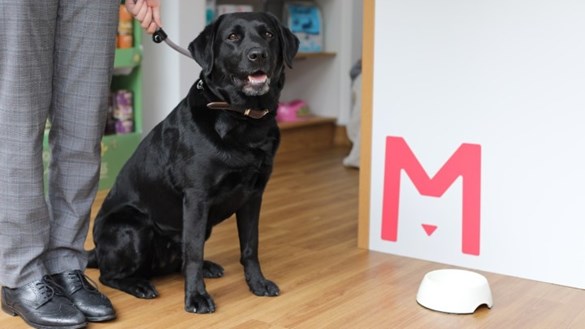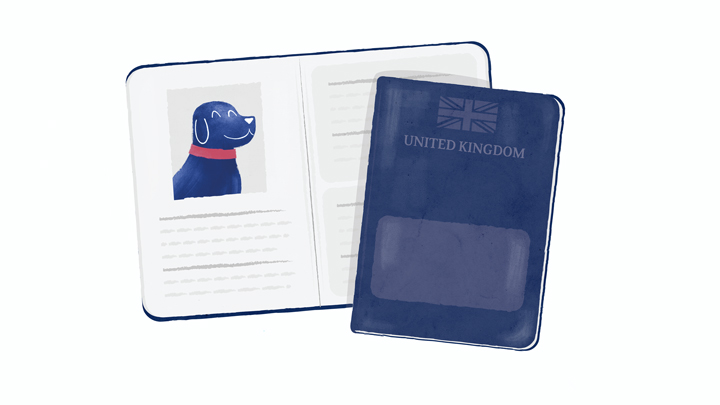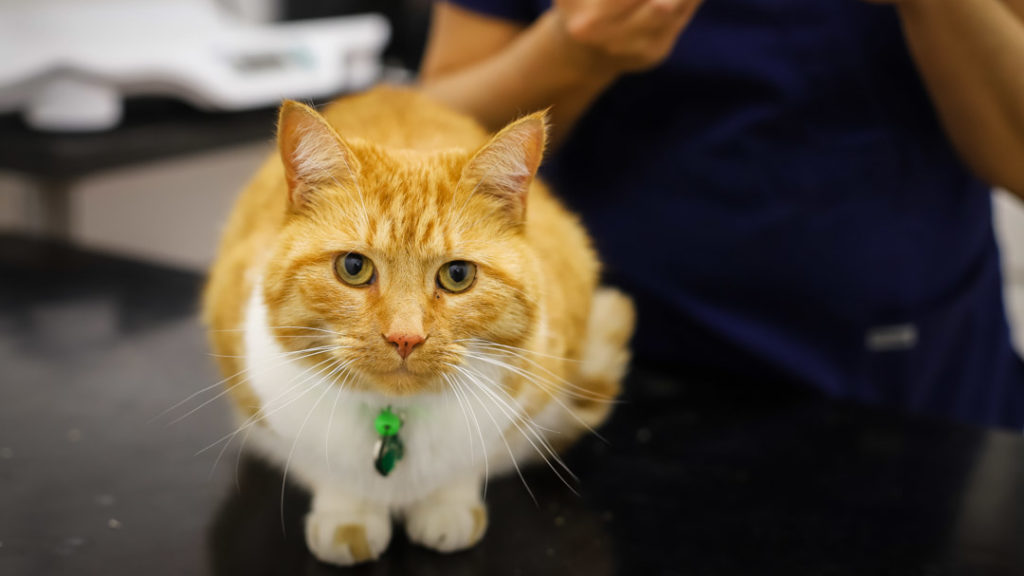Travelling To An EU Country With Your Pet
Great Britain (England, Scotland and Wales), including the Channel Islands and the Isle of Man, has been a Part 2 listed third country under the EU Pet Travel Scheme since 1st January 2021, the date that Great Britain left the European Union (EU).

This means that current pet passports are no longer valid. There are also changes around travelling to Northern Ireland with your pet. Read our advice and be prepared.

Travelling to an EU country or Northern Ireland
Due to Great Britain becoming a Part 2 listed third country, any current pet passport issued in Great Britain (England, Wales, and Scotland) will not be valid and instead you will need an Animal Health Certificate (AHC) for travel into and around the EU or Northern Ireland. An AHC will also be required for travel from the UK to Northern Ireland. The AHC will only be valid for a single trip. You can add up to 5 pets to an animal health certificate.
Your pet also needs:
- A microchip
- A valid rabies vaccination
- Tapeworm treatment
These requirements also apply to assistance dogs.
Please check the rules of the country you are travelling to for additional restrictions or requirements before you travel.
Will my current UK issued pet passport be valid?
No, your current pet passport issued in Great Britain (England, Wales, and Scotland) will not be valid for travel into or around the EU or Northern Ireland after 31st December 2020.
If you plan to travel with your pet after 1st January 2021, you will need to talk to your vet about an Animal Health Certificate (AHC). You need to do this no more than 10 days before you travel.

What if I am returning to or entering the UK?
You can enter or return to Great Britain with your pet cat, dog, or ferret if it:
- Has been microchipped
- Has a pet passport (travel into the UK only) or health certificate (AHC) issued in the UK (valid for four months after the date of issue)
- Has been vaccinated against rabies – it will also need a blood test if coming from a country that is not ‘listed’ on the government website.
- An EU passport (issued in the EU or in the UK before 1st January 2021)
- An Animal Health Certificate (AHC) issued in the UK (valid for four months after the date of issue)
- A UK pet health certificate (for travel into the UK only)
Dogs must also be treated for tapeworm by a vet. The treatment must be approved for use in the country that it’s administered in and must be given no less than 24 hours and no more than five days before entering the UK.
You don’t need to treat your dog for tapeworm if you’re travelling from Finland, Northern Ireland, Malta or Norway. Specific rules apply for short trips, which include treatment before you travel.
Your pet may be put into quarantine for up to four months if you do not follow these rules.
There are extra rules if the animal is to be sold or rehomed in Great Britain. Please refer to the government website.
What do I need to do?
If you are intending travel with your pet you need to be clear on the new requirements and plan ahead. Please note the following points:
The requirements for a Part 2 listed third country:
- Your dog, cat, or ferret must be microchipped.
- Your pet must be older than 12 weeks of age.
- Your pet must be vaccinated against rabies (your pet will need to be at least 12 weeks of age to have this vaccination).
- An AHC can be issued by your vet three weeks after the initial rabies vaccination.
- An AHC is only valid for travel into the EU or Northern Ireland for 10 days after the date of issue.
- An AHC can only be issued by an ‘Official Vet’ (OV). All Medivet clinics have access to an OV; please call to arrange as far in advance as possible so we can make sure an OV is available.
- You will need a new AHC for each trip that you take, unlike a pet passport the AHC is not valid for multiple uses.
- Once you have entered the EU or Northern Ireland, the AHC is then valid for four months (after the date of issue), permitting travel between other EU countries (not the UK) during the same trip. It is then permitted for entry back into the UK.
- Ferrets can catch and spread new variants of COVID-19. If you bring a ferret to England from outside the UK, Ireland, the Channel Islands or the Isle of Man, you should keep it away from other ferrets and other people in your household for 21 days.
The steps above mean that you should start preparing at least three weeks before you travel. If at all possible we recommend a longer period to ensure that everything runs smoothly.
Your pet’s animal health certificate will be valid after the date of issue for:
- 10 days for entre into the EU or Northern Ireland
- 4 months for onward travel within the EU
- 4 months for re-entry to Great Britain
Please contact your local Medivet practice and we will be able to advise you on the steps that you need to take and get appointments booked to ensure your travel plans aren’t interrupted.

What else do I need to know?
- An AHC is now required to travel to Northern Ireland. Previously there was no requirement for a pet passport when travelling to Northern Ireland – this changes from the 1st January 2021.
- There is no requirement for a blood test after the rabies vaccination. However, the fact that you need an AHC for each trip means that it’s essential that you keep your rabies vaccinations up to date. Should your rabies vaccination lapse, you will need to re-start and wait 21 days for the AHC.
- If you are travelling with more than five pets, different guidelines apply, and you should speak to your vet.
- Some EU countries may require your pet to have undergone a tapeworm treatment. These include Finland, Ireland, Malta, Northern Ireland and Norway. Please talk to your vet and always check before you travel.
Where is the best place to check for up to date information?
We will be keeping this page up to date. The government website is a good source of up to date information https://www.gov.uk/guidance/pet-travel-to-europe-after-brexit
Talk to your vet about an Animal Health Certificate for EU travel

Medivet Healthcare Plan
On average our clients save an average of £225 with the Medivet Healthcare Plan.
Learn more


